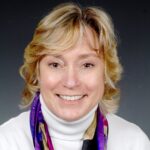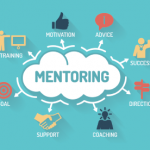After publishing a paper with my mentor, I enrolled in a doctoral program to gain the skills and experience needed to become an independent investigator. As a doctoral student, I had the opportunity to receive formal mentoring from my faculty advisor. We would meet regularly to work on abstracts and papers. I would send new work in advance of the meeting, and my advisor would provide valuable feedback.
After finishing my Doctor of Science degree, I started a post-doctoral fellowship within a clinical epidemiology research unit. I was unique because most of my peers were physicians. Nevertheless, the training needs of both physicians and physical therapists aiming toward a career in clinical science were the same. I needed didactic training in epidemiology and specific mentorship in my areas of interest. For the first time, I had the opportunity to be mentored by several senior scientists, and each covered a specific area of development.
When I was at Boston University Medical Campus and Boston Medical Center, my overall career mentor, rheumatologist David Felson, MD, MPH, ensured I was moving in the right direction overall. I also had two content-specific mentors. One was rheumatologist Tuhina Neogi, MD, PhD, who provided mentorship from a clinical perspective, and the other was Yuqing Zhang, MD, a methodologist who stretched my understanding of how to apply epidemiologic methods. I was also heavily influenced by biostatistician Mike LaValley, PhD.
As my area of research became more focused, I reached out to experts within these specialized fields, which helped me gain a better understanding of scientific methods and approaches to physical activity.
After taking my first tenure-track appointment, I set up my own lab and started to mentor emerging clinician scientists. I applied what I felt worked best as a mentee, focusing on mentee-led projects that involved papers and abstracts, and set up a recurring meeting schedule to touch base with each mentee.
What has surprised me the most is how my mentees took some of my initial areas of interest and developed them into brilliant works that I could not have thought were possible.
To this day, being a mentor continues to be a very rewarding experience.
Susan’s Story

Dr. Bartlett
My most influential mentoring experiences in rheumatology were in my early days as an instructor of medicine at Johns Hopkins University, Baltimore. During grad school and a post-doctoral fellowship, I had implemented and evaluated the effects of weight management treatments on patient outcomes, including arthritis.



